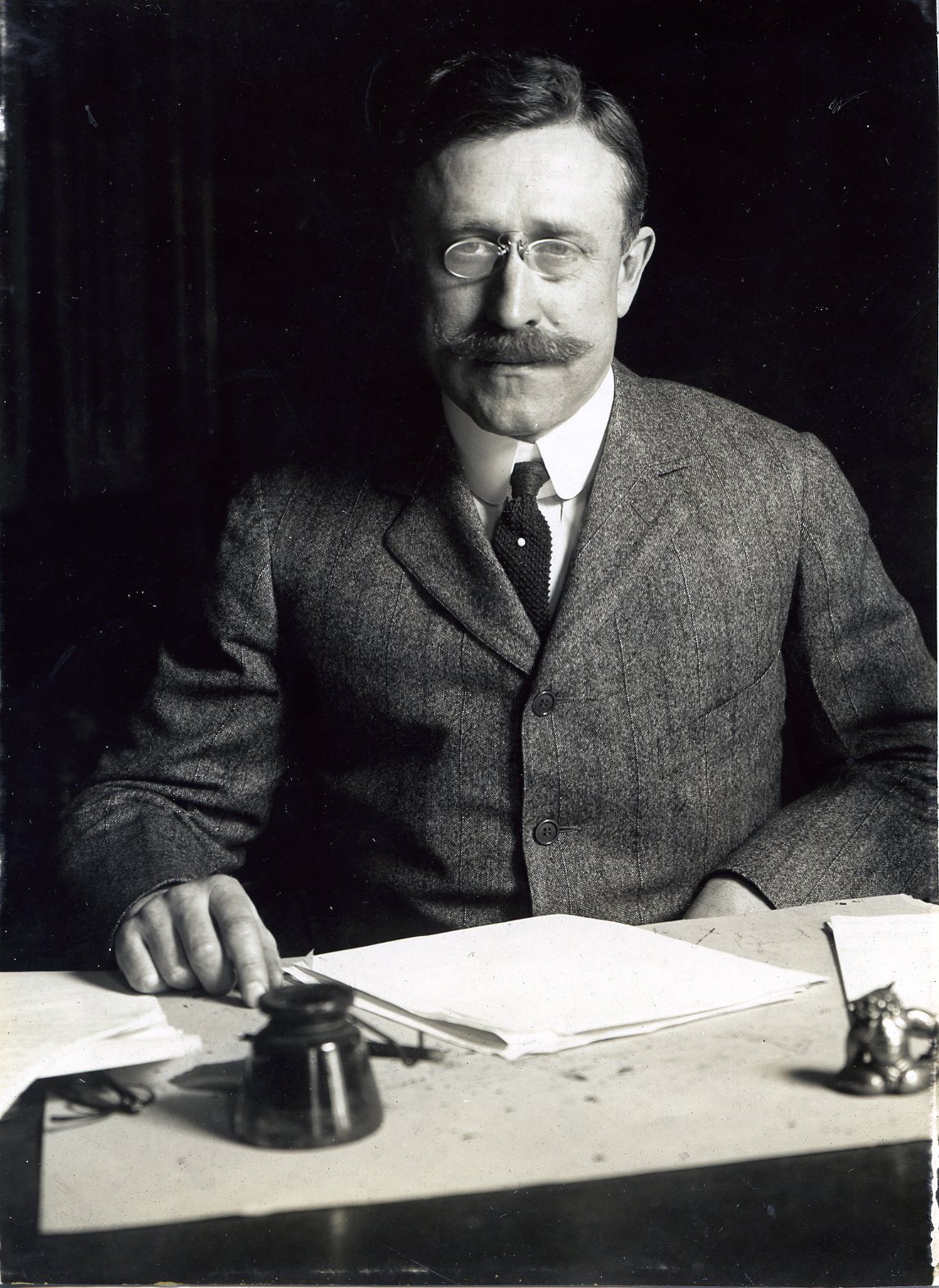Author
Centurion, 1911–1958
Born 29 January 1873 in Pleasantville, Pennsylvania
Died 2 September 1958 in Charlottesville, Virginia
Buried Grace Episcopal Church Cemetery , Cismont, Virginia
, Cismont, Virginia
Proposed by Rufus F. Zogbaum and Stephen Bonsal
Elected 4 March 1911 at age thirty-eight
Proposer of:
Seconder of:
Century Memorial
Frederick Palmer graduated from Allegheny College in 1893—just in time to go to London and be a war correspondent reporting the Turkish-Greek War. After this he was a war correspondent whenever there was a war going on. He went to the Klondike for the gold rush and the Philippines for the war with Spain, and returned around the world with Admiral Dewey in 1899. In 1900 he accompanied the expedition for the relief of Peking, and there got to know Captain John J. Pershing, the future commander of the A.E.F. With the First Japanese Army in the field he reported the Russo-Japanese War, and this got him a high reputation. The other two accredited American correspondents reporting that war were Jack London and Richard Harding Davis. He attended the Philippine Insurrection, and the Chinese Boxer Rebellion, and was on hand at several Central American revolutions. At the age of 35 he was the Dean of American War Correspondents.
When the First World War came along, he was assigned to the British Army and Fleet, the only accredited American correspondent with them from 1914 to 1917. After the United States entered the war, General Pershing commissioned him Lieutenant-Colonel and stationed him at G.H.Q. in Chaumont, where his services as military censor and historian of the A.E.F. were invaluable.
As a war correspondent Palmer was scrupulously ac curate and correct. The result was the Generals liked him and trusted him, and this advantaged him very much. He always played strictly according to the rules. After the war he wrote various books, including biographies of Pershing and of Secretary Newton D.] Baker.
He was an unromantic man, very much of the world. He had a resonant voice, and spoke slowly in a somewhat oratorical manner; but a kind of half smile indicated he was not taking himself too seriously. He was not optimistic about the salvation of the world, and considered the New Deal just so much drivel. Nevertheless, he was always cheerful and amusing and not in the least downcast at the prospects.
In truth, he was a very civilized person with a great store of wisdom and philosophy.
George W. Martin
1959 Century Association Yearbook

